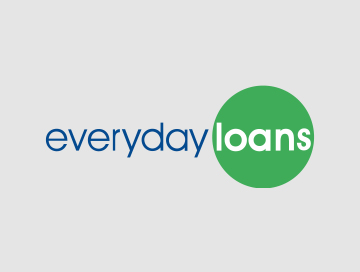Nov 04,2013
When do lenders accept benefits as income?
Some loans companies offer packages specifically designed for people who are receiving various types of benefits.
May 07,2024
Creating Equal Opportunities: The Role of Lenders in Financial Inclusion
Access to financial services plays a pivotal role in pursuing a fair and equitable society. It empowers individuals and communities, fosters economic growth, and promotes social mobility. However, for far too long, segments of the population have been excluded from mainstream financial systems, hindering their ability to achieve financial stability and realise their full potential.
This is where the lending industry, with its vast reach and influence, can play a transformative role in promoting financial inclusion – the initiative to ensure that affordable and appropriate financial products and services are accessible to all individuals and businesses, regardless of their socioeconomic status or geographic location.
At the core of financial inclusion lies the principle of equal opportunity. By providing fair and transparent access to credit, lenders can empower individuals who are traditionally underserved.
One key barrier to financial inclusion has been the overreliance on traditional credit scoring models, which often fail to capture the nuances of individuals with limited or non-traditional credit histories. Lenders can challenge these outdated paradigms by embracing alternative data sources and innovative risk assessment methodologies that paint a more comprehensive picture of a potential borrower's creditworthiness.
By leveraging data from sources such as utility bills and rental payments through technology such as Open Banking, lenders can gain insights into an individual's financial behaviour and creditworthiness, paving the way for more inclusive lending decisions that extend beyond the constraints of traditional credit scoring.
Furthermore, the advent of digital lending platforms and fintech solutions has the potential to democratise access to credit by breaking down geographic barriers and reaching underserved communities in remote or rural areas. By harnessing the power of mobile technologies and digital infrastructure, lenders can create user-friendly, accessible platforms that cater to the unique needs and preferences of diverse borrower segments.
However, financial inclusion is not merely about extending credit; it also encompasses the broader commitment to promoting financial literacy and empowering individuals with the knowledge and skills required to make informed financial decisions. Lenders have a responsibility to invest in educational initiatives, provide accessible resources, and foster a culture of financial awareness within the communities they serve.
By equipping individuals with the tools to manage their finances effectively, understand the implications of borrowing, and navigate the complexities of the lending ecosystem, lenders can contribute to the long-term financial resilience and well-being of their customers, creating a cycle of economic empowerment and sustainable growth.
Regulatory bodies and policymakers also play a pivotal role in supporting and incentivising financial inclusion efforts within the lending industry. By establishing clear guidelines, providing regulatory frameworks that encourage responsible and inclusive lending practices, and offering targeted incentives or subsidies, authorities can create an environment that fosters innovation and promotes equitable access to financial services.
Moreover, by embracing financial inclusion as a core value, lenders can position themselves as socially responsible and purpose-driven organisations, fostering trust and loyalty among their customers while contributing to the broader socioeconomic development of their communities.
In a world where economic disparities persist, and inequality remains a pressing challenge, the lending industry has the power to be a catalyst for positive change. By championing financial inclusion, lenders can break down barriers, create equal opportunities, and empower individuals and communities to realise their full potential.
It is a journey that requires a commitment to innovation, a willingness to challenge traditional paradigms, and a genuine desire to create a more inclusive and equitable financial ecosystem. As lenders embrace this transformative role, they not only contribute to the financial well-being of individuals but also lay the foundation for a more prosperous, just, and sustainable society for generations to come.
Posted in Economy on May 07, 2024.



Nov 04,2013
Some loans companies offer packages specifically designed for people who are receiving various types of benefits.

Mar 11,2021
Mother’s Day - which falls on Sunday 14th March - is fast approaching.

Dec 05,2022
It’s the most wonderful time of the year, but the current cost of living crisis means many of us will be feeling the pinch this Christmas. According to a Reuters survey, 75% of adults aren’t planning a big celebration this year – and with food prices...
The Everyday Loans News and Blog area is for informational purposes only. The information provided shouldn’t be seen as advice. Using any information in the blogs or news articles is at the reader's risk.
The information posted is accurate and true to the best of Everyday Loans knowledge at the time of publication.
Everyday Loans doesn’t accept liability for the information provided on third-party websites. It reserves the right to edit, amend, or remove any post at any time without notice. The external links in the blogs are not affiliate links, and Everyday Loans won’t receive any commission if the reader clicks on the link.